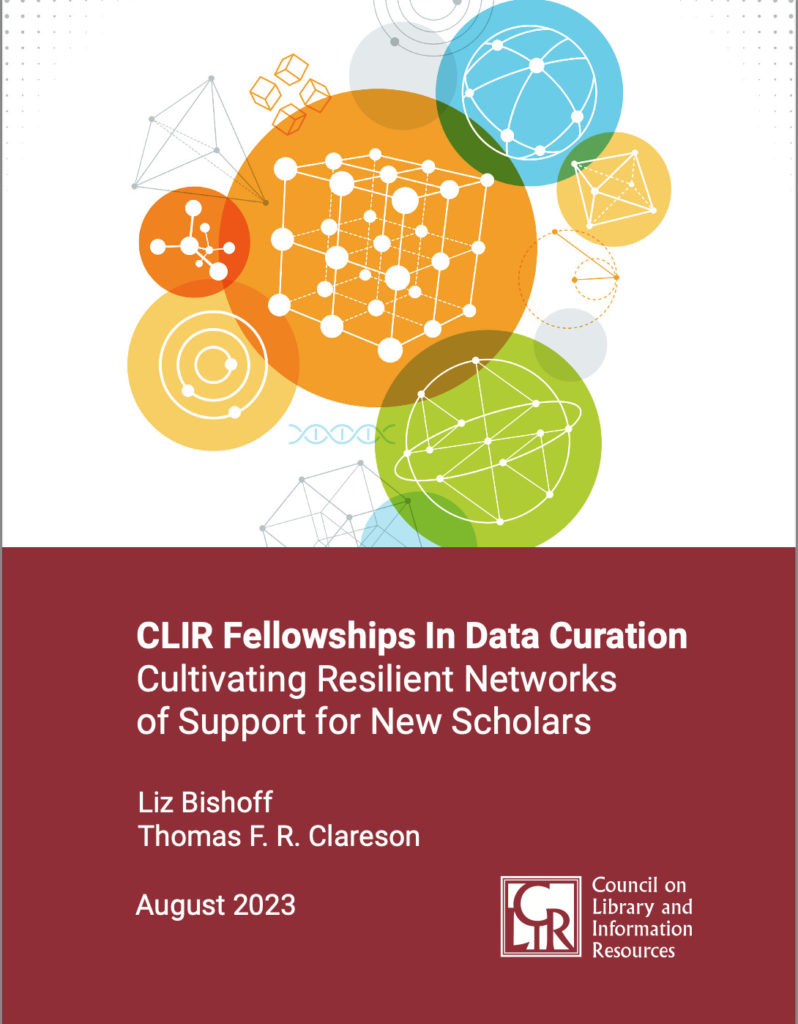CLIR Announces Evaluation Report on Postdoctoral Fellowship Program: Cultivating Resilient Networks of Support for New Scholars
Redefining the Landscape for Postdoctoral Fellowships in Data Curation, Empowering Scholars and Shaping a More Inclusive Future
Click to Learn More and Download Report
The Council on Library and Information Resources (CLIR) is pleased to announce the publication of CLIR Fellowships in Data Curation: Cultivating Resilient Networks of Support for New Scholars. With generous support from the Mellon Foundation in 2018, CLIR engaged an external research team to evaluate its inventive and influential postdoctoral fellowships in data curation for the humanities. Representing the first external assessment of the fellowship program since it was created in 2004, the report presents an opportunity to engage interested professional constituencies in a sustained dialogue about the merits of the program and its future.
“This salutary report espouses a fundamental and widely applicable insight: that challenges posed by new technologies are best responded to by creating new, vibrant communities that work together to address the complexities and implications of the technical disruption,” said Charles J. Henry, president of CLIR. “ ‘Data’ was (and is) such a phenomenon. The fellowships have been in essence a social, cultural, and intellectual regathering of the considerable talent and interests of young scholars focused on managing, curating, and making reusable essential digital information.”
CLIR hired Liz Bishoff of The Bishoff Group and Thomas F. R. Clareson, senior consultant of Lyrasis, to conduct a series of in-depth interviews, surveys, and focus groups involving a diverse array of program stakeholders. Over a span of four years, the team interviewed approximately 70 current and former data curation fellows, supervisors, and program leaders, resulting in valuable insights.
“CLIR’s focus on advancing diversity, equity and inclusiveness was demonstrated particularly in the 2018-2022 cohorts,” noted author Liz Bishoff. “The program also developed a vibrant network of alumni allowing for the further development of data curation in both libraries and the academy.”
“During the course of the evaluation of CLIR’s program, we saw some groundbreaking models of community engagement and inclusion developed through the fellows’ projects,” observed author Tom Clareson.
The report encapsulates the team’s methodologies and presents a compilation of their findings. The evaluation not only underlines the significant impact of CLIR’s fellowship program, but also describes applicable paradigms and new horizons for organizations aspiring to create short-term project-based employment opportunities within academic and cultural heritage organizations.
CLIR’s commitment to excellence has been fortified through this evaluation, reaffirming its mission to shape a more resilient and supportive landscape for emerging scholars. The report’s implications will undoubtedly resonate throughout the academic and cultural communities, as these communities work together to facilitate a brighter, more inclusive future.
For more information and to explore the report’s findings in detail, visit https://www.clir.org/pubs/reports/clir-fellowships-in-data-curation/.
The Council on Library and Information Resources is an independent, nonprofit organization that forges strategies to enhance research, teaching, and learning environments in collaboration with libraries, cultural institutions, and communities of higher learning.


